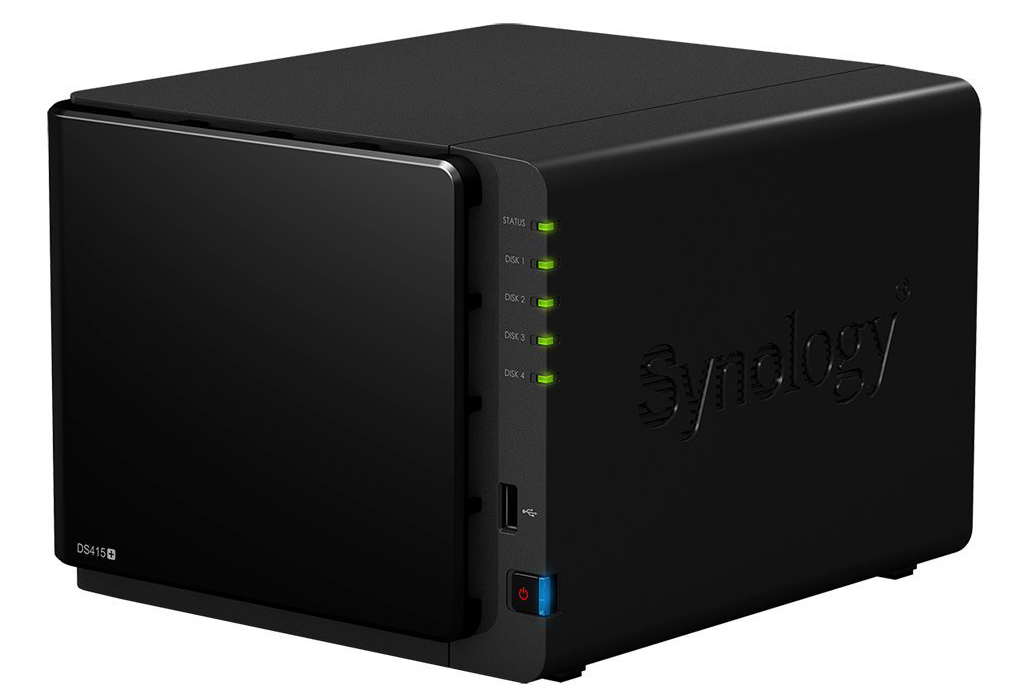Synology DS415+ NAS Review
The Synology DS415+ takes us back to simpler times when storage products focused on storage and features were designed for business users.
Why you can trust Tom's Hardware
Conclusion
Synology sells a lot of NAS appliances, but over the years, I've never really been impressed with the company's products. Does that change with the DS415+? Yes and no.
The DS415+ chassis is like the old Chieftec case that everyone bought in 1998 but you could find new in 2008. It's still effective; however, newer models from other manufacturers are more compact and only require one large fan, compared to the DS415+'s two smaller fans. The NAS also puts a USB 2.0 port up front, right where we'd like to have USB 3.0 connectivity accompanied by a one-touch copy button for backing up data from external storage devices.
Aside from the portable storage backup, none of this really matters to someone just looking to add storage to a LAN or access an Internet-attached repository. For most of us, that's enough. All of the HDMI, 7.1-channel sound and home automation gizmos are extras that look nice on a specification sheet, but are often impractical and go unused.
DiskStation Manager, Synology's GUI, is now up to version 5.2. And the company is starting to get more competitive by adding software-based features to its storage platforms. Docker, the latest craze in virtual technology, was brought up by Synology and QNAP right around the same time. The rest of the NAS appliance makers are still trying to catch up. Synology also released SSD caching early on. Clearly, value-added capabilities are showing up in DiskStation Manager much sooner now than in the past.
The DS415+ ships with only 2GB of DDR3 RAM, but the compression engine allows the DiskStation Manager to remain snappy. Even with compression, the small system memory size will prevent you from loading this system with a lot of applications.
This model is all about storage, and it's very good at that primary task. Our test results tell the story there. We didn't find any weak spots from the optimizations Synology has in place. In fact, the system is so well-tuned that it competes with Asustor's AS7004T, which costs nearly twice as much.
MORE: All Storage ArticlesMORE: Latest Storage News
MORE: Storage in the Forums
Get Tom's Hardware's best news and in-depth reviews, straight to your inbox.

Chris Ramseyer was a senior contributing editor for Tom's Hardware. He tested and reviewed consumer storage.
-
Rookie_MIB Nothing wrong with focusing on having an appliance do it's primary task (storage) and do it well. Most people will set up a NAS device and just leave it to do it's job silently in a corner or a closet somewhere for a few years.Reply
As long as it's capable of performing that job, then I would call it a good product. -
BoredSysAdmin I learned from my mistakes, maybe you should learn from my and don't touch synology (especially in business environment) with a ten foot poleReply
http://www.boredsysadmin.com/2015/10/a-bit-of-insight-into-synology-or-why.html -
HideOut WHy wouldnt you just get a buffalo 441e @ under $200. Its not as powerful but for home users you need nothing more. No home user should be spending over $500 on a bare box. Thats nuts.Reply -
milkod2001 ZyXEL NAS540Reply
With 1.2 GHz dual-core CPU and 1 GB of DDR3 RAM, The two Ethernet LAN ports for under €150 would probably piss all over this.
Would love to see this unit reviewed. By specs and price it looks like really good value for average home user.
